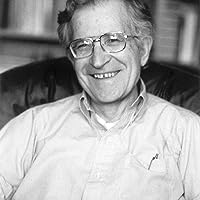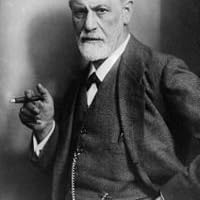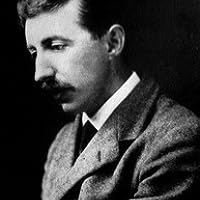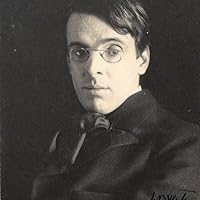Civilisation Quotes
Quotes tagged as "civilisation"
Showing 1-30 of 177

“Most civilisation is based on cowardice. It's so easy to civilize by teaching cowardice. You water down the standards which would lead to bravery. You restrain the will. You regulate the appetites. You fence in the horizons. You make a law for every movement. You deny the existence of chaos. You teach even the children to breathe slowly. You tame.”
― God Emperor of Dune
― God Emperor of Dune

“The two main criminals are France and the United States. They owe Haiti enormous reparations because of actions going back hundreds of years. If we could ever get to the stage where somebody could say, 'We're sorry we did it,' that would be nice. But if that just assuages guilt, it's just another crime. To become minimally civilized, we would have to say, 'We carried out and benefited from vicious crimes. A large part of the wealth of France comes from the crimes we committed against Haiti, and the United States gained as well. Therefore we are going to pay reparations to the Haitian people.' Then you will see the beginnings of civilization.”
― Imperial Ambitions: Conversations on the Post-9/11 World
― Imperial Ambitions: Conversations on the Post-9/11 World

“The European talks of progress because by the aid of a few scientific discoveries he has established a society which has mistaken comfort for civilisation.”
―
―

“Civilisation is the distance that man has placed between himself and his own excreta.”
― The Dark Light Years
― The Dark Light Years

“Civilized society is perpetually menaced with disintegration through this primary hostility of men towards one another.”
―
―
“All we know about the new economic world tells us that nations which train engineers will prevail over those which train lawyers. No nation has ever sued its way to greatness. ”
―
―

“And I'll close by saying this. Because anti-Semitism is the godfather of racism and the gateway to tyranny and fascism and war, it is to be regarded not as the enemy of the Jewish people, I learned, but as the common enemy of humanity and of civilisation, and has to be fought against very tenaciously for that reason, most especially in its current, most virulent form of Islamic Jihad. Daniel Pearl's revolting murderer was educated at the London School of Economics. Our Christmas bomber over Detroit was from a neighboring London college, the chair of the Islamic Students' Society. Many pogroms against Jewish people are being reported from all over Europe today as I'm talking, and we can only expect this to get worse, and we must make sure our own defenses are not neglected. Our task is to call this filthy thing, this plague, this—this pest, by its right name; to make unceasing resistance to it, knowing all the time that it's probably ultimately ineradicable, and bearing in mind that its hatred towards us is a compliment, and resolving (some of the time, at any rate) to do a bit more to deserve it. Thank you.”
―
―

“The twins were too young to know that these were only history’s henchmen. Sent to square the books and collect the dues from those who broke its laws. Impelled by feelings that were primal yet paradoxically wholly impersonal. Feelings of contempt born of inchoate, unacknowledged fear—civilization’s fear of nature, men’s fear of women, power’s fear of powerlessness. Man’s subliminal urge to destroy what he could neither subdue nor deify.”
― The God of Small Things
― The God of Small Things

“Few travelled in these days, for, thanks to the advance of science, the earth was exactly alike all over. Rapid intercourse, from which the previous civilization had hoped so much, had ended by defeating itself. What was the good of going to Peking when it was just like Shrewsbury? Why return to Shrewsbury when it would all be like Peking? Men seldom moved their bodies; all unrest was concentrated in the soul.”
― The Machine Stops
― The Machine Stops

“Four thousand years ago, we, the people of the Indus River basin, had cities that were laid out on grids and boasted underground sewers, while the ancestors of those who would invade and colonize America were illiterate barbarians.”
― The Reluctant Fundamentalist
― The Reluctant Fundamentalist

“And ... and what is civilisation if it isn’t people talking to each other over a goddamned beer?”
― Cibola Burn
― Cibola Burn

“Civilisation’s like the economy or Tinkerbell: If people stop believing it’s real, it dies.”
― The Bone Clocks
― The Bone Clocks

“When a cycle of civilisation is reaching its end, it is difficult to achieve anything by resisting it and by directly opposing the forces in motion. The current is too strong; one would be overwhelmed. The essential thing is to not let oneself be impressed by the omnipotence and apparent triumph of the forces of the epoch. These forces, devoid of connection with any higher principle, are in fact, on a short chain. One should not become fixated on the present, and on things at hand, but keep in view the conditions that may come about in the future. Thus the principle to follow could be that of letting the forces and processes of this epoch take their own course, while keeping oneself firm and ready to intervene when "the tiger, which cannot leap of the person riding it, is tired of running".”
― Ride the Tiger: A Survival Manual for the Aristocrats of the Soul
― Ride the Tiger: A Survival Manual for the Aristocrats of the Soul

“This week, Zuma was quoted as saying, 'When the British came to our country, they said everything we are doing was barbaric, was wrong, inferior in whatever way.' But the serious critique of Zuma is not about who is a barbarian and who is civilised. It is about good governance, and this is a universal value, as relevant to an African village as it is to Westminster. If you are unable to keep your appetites in check, you are inevitably going to live beyond your means. And this means you are going to become vulnerable to patronage and even corruption. That is why Jacob Zuma's 'polygamy' is his achilles heel.”
―
―

“I am convinced that everything has come down to us from the banks of the Ganges, - astronomy, astrology, metempsychosis, etc... It is very important to note that some 2,500 years ago at the least Pythagoras went from Samos to the Ganges to learn geometry...But he would certainly not have undertaken such a strange journey had the reputation of the Brahmins' science not been long established in Europe”
―
―

“There's a certain amount of ambiguity in my background, what with intermarriages and conversions, but under various readings of three codes which I don’t much respect (Mosaic Law, the Nuremberg Laws, and the Israeli Law of Return) I do qualify as a member of the tribe, and any denial of that in my family has ceased with me. But I would not remove myself to Israel if it meant the continuing expropriation of another people, and if anti-Jewish fascism comes again to the Christian world—or more probably comes at us via the Muslim world—I already consider it an obligation to resist it wherever I live. I would detest myself if I fled from it in any direction. Leo Strauss was right. The Jews will not be 'saved' or 'redeemed.' (Cheer up: neither will anyone else.) They/we will always be in exile whether they are in the greater Jerusalem area or not, and this in some ways is as it should be. They are, or we are, as a friend of Victor Klemperer's once put it to him in a very dark time, condemned and privileged to be 'a seismic people.' A critical register of the general health of civilization is the status of 'the Jewish question.' No insurance policy has ever been devised that can or will cover this risk.”
― Hitch 22: A Memoir
― Hitch 22: A Memoir

“Old people have wisdom but not energy; young people have energy but not wisdom; energy and wisdom must be in the same body to create a much better civilisation! To do this, we will either give energy to the old or we will give wisdom to the young and for now the latter seems a more plausible action!”
―
―

“As he grew older, which was mostly in my absence, my firstborn son, Alexander, became ever more humorous and courageous. There came a time, as the confrontation with the enemies of our civilization became more acute, when he sent off various applications to enlist in the armed forces. I didn't want to be involved in this decision either way, especially since I was being regularly taunted for not having 'sent' any of my children to fight in the wars of resistance that I supported. (As if I could 'send' anybody, let alone a grown-up and tough and smart young man: what moral imbeciles the 'anti-war' people have become.)”
― Hitch 22: A Memoir
― Hitch 22: A Memoir
“I thought I was getting away from politics for a while. But I now realise that the vuvuzela is to these World Cup blogs what Julius Malema is to my politics columns: a noisy, but sadly unavoidable irritant. With both Malema and the vuvuzela, their importance is far overstated. Malema: South Africa's Robert Mugabe? I think not. The vuvuzela: an archetypal symbol of 'African culture?' For African civilisation's sake, I seriously hope not.
Both are getting far too much airtime than they deserve. Both have thrust themselves on to the world stage through a combination of hot air and raucous bluster. Both amuse and enervate in roughly equal measure. And both are equally harmless in and of themselves — though in Malema's case, it is the political tendency that he represents, and the right-wing interests that lie behind his diatribes that is dangerous. With the vuvu I doubt if there are such nefarious interests behind the scenes; it may upset the delicate ears of the middle classes, both here and at the BBC, but I suspect that South Africa's democracy will not be imperilled by a mass-produced plastic horn.”
―
Both are getting far too much airtime than they deserve. Both have thrust themselves on to the world stage through a combination of hot air and raucous bluster. Both amuse and enervate in roughly equal measure. And both are equally harmless in and of themselves — though in Malema's case, it is the political tendency that he represents, and the right-wing interests that lie behind his diatribes that is dangerous. With the vuvu I doubt if there are such nefarious interests behind the scenes; it may upset the delicate ears of the middle classes, both here and at the BBC, but I suspect that South Africa's democracy will not be imperilled by a mass-produced plastic horn.”
―

“The forests were crippled, the wheat fields vanished; in place of the grass there reappeared stone and drifting sand. Men perished and moved on, the cities sank back into the sand, the dust settled over them. Thousands of years later Nordic dreamers dug up the petrified culture from the rubble and ashes. Today, the entire picture of the former paradise stands before our eyes as a spent dream which had once produced life, beauty and strength as long as a superior race ruled. It will live again and it will dream again. But as soon as races of a dreamless kind took over and attempted to realize the dream, reality vanished with the dream.”
― The Myth of the Twentieth Century
― The Myth of the Twentieth Century

“I command you to leave me at once, for your ideas and phantasies are but the illusions that creep like maggots into civilizations when they begin to decline, and into minds when they begin to decay.”
― Rosa Alchemica
― Rosa Alchemica

“...и най-внушителните съоражения в основата си израстват от пясък. Именно той е канавата, от която се появява един от най-внушителните символи на цивилизацията - пътят. Така както в един дворец не може да има само мрамор, така и пътят започва от прашинката. А не е ли така и с живота ни? Колко пясък трябва да изгребе търсачът на съкровища, за да достигне до една трошица злато?”
― Тит от Никомедия
― Тит от Никомедия
“Les civilisations de l´Antiquité se sont donné des dieux et des codes, les civilisations modernes des lois et des méthodes.”
―
―

“Sans responsabilité, il n'y a pas de civilisation.”
― L'humain Impossible: Cent Sonnets pour Ma Famille Mondiale
― L'humain Impossible: Cent Sonnets pour Ma Famille Mondiale

“La vie humaine est le germe de la civilisation. La vie humaine commence à la fin de la division.”
― L'humain Impossible: Cent Sonnets pour Ma Famille Mondiale
― L'humain Impossible: Cent Sonnets pour Ma Famille Mondiale
“Perhaps the most significant intellectual trend of the eighteenth century was that towards what we now label 'Romanticism'. Within this often rather monstrous historical figment of retrospective definition, one of the commonest of theoretical concerns was to speculate on the nature of society, and on the nature of social development. Theories of Man's primitive nature blossomed, and the Romantics looked both to nature and to this primal human essence for their poetic and intellectual inspiration. At the same time as British intellectuals were becoming more and more interested in the nature of primitive man and primitive society, they had within their own national boundaries a fitting subject for their attention. The Scottish Gael fulfilled this role of the 'primitive', albeit one quickly and savagely tamed, at a time when every thinking man was turning towards such subjects. The Highlands of Scotland provided a location for this role that was distant enough to be exotic (in customs and language) but close enough to be noticed; that was near enough to visit, but had not been drawn so far into the calm waters of civilisation as to lose all its interest.”
― The Gaelic Vision in Scottish Culture
― The Gaelic Vision in Scottish Culture
All Quotes
|
My Quotes
|
Add A Quote
Browse By Tag
- Love Quotes 98k
- Life Quotes 76.5k
- Inspirational Quotes 73.5k
- Humor Quotes 44k
- Philosophy Quotes 30k
- Inspirational Quotes Quotes 27k
- God Quotes 26.5k
- Truth Quotes 24k
- Wisdom Quotes 24k
- Romance Quotes 23.5k
- Poetry Quotes 22.5k
- Death Quotes 20k
- Life Lessons Quotes 20k
- Happiness Quotes 19k
- Quotes Quotes 18k
- Faith Quotes 18k
- Hope Quotes 18k
- Inspiration Quotes 17k
- Spirituality Quotes 15k
- Religion Quotes 15k
- Motivational Quotes 15k
- Writing Quotes 15k
- Relationships Quotes 14.5k
- Life Quotes Quotes 14.5k
- Love Quotes Quotes 14k
- Success Quotes 13.5k
- Time Quotes 12.5k
- Motivation Quotes 12.5k
- Science Quotes 11.5k
- Motivational Quotes Quotes 11.5k





